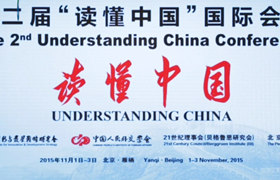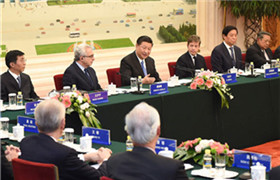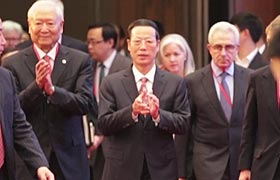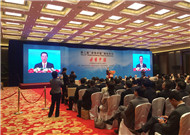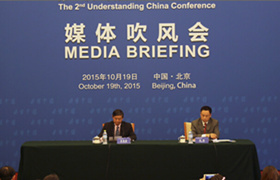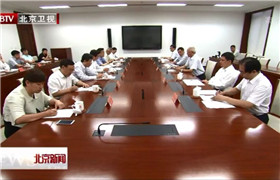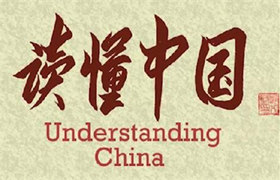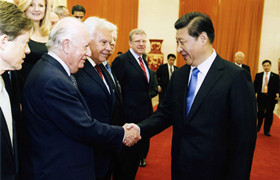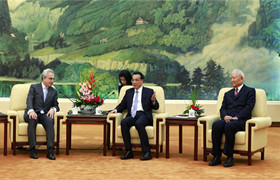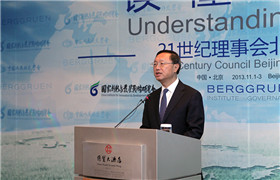- HOME--> Research
-
China Should Become a World-Class Cyber Power
Source:CIIDS
(This is an excerpt of the internal report on the themed research Cyber Strategy presided over by Chairman Zheng Bijian, compiled on April 3, 2013)
(I) As early as in December 2002, namely eleven years ago, I proposed to the central government in a research report that the informatization worldwide with microelectronic technology as the core could be an unprecedented chance for China's peaceful development, and we should seize it.
The development of information technology over the past decade has provided strong evidence.
(II) The Chinese nation missed the development opportunities arising from industrial revolution more than once, causing serious consequences. Today, the Internet has changed the world in a way that may outshine the implications of industrial revolution in the past. The rise and revival of China, therefore, owe much to our ability in leveraging the historical opportunities of this cyber reform. This requires our determination as soon as possible, with a top-down unified mindset to catch up, effectively improving strategic planning and strategic management around the overall layout of cyberspace productivity, defense and culture, taking a multi-task approach to enforcement to build China into a world-class cyber power featuring cyber sovereignty, advanced network technology and a strong cyber culture.
(III) With a clear understanding of the gaps and problems identified, we need to be aware of three potential edges for the safe development of cyberspace taking shape over the past three decades since the beginning of reform and opening up. First, China has the largest group of Internet users. Up to now, China's Internet users nearly account for 600 million, a quarter of the world's total, indicating unparalleled advantages in human resources, as a huge base of users will nourish the top creative brains. It can also produce a highly functional troop of cyber security. Second, China has become the world's largest production and procurement market of IT. While the core technologies and cutting-edge products of China are subject to strict embargo conditions imposed by some powers, gravity of such an enormous market could be a trump for the introduction of original technology. China's proprietary IT vendors, like Huawei and Lenovo, etc., have occupied a large share in the international market, which will be conducive to our cyber security. Last but not least, China has been institutionally advantaged in concentrating efforts on its priorities. The success story of the "two bombs and one satellite" can be reproduced in the construction of cyberspace, so that we can regain the initiative in the shortest time possible, getting ahead of others as a latecomer.
(IV) A strategic frame should be established, characterized by "creating a digital nation, double engines, cyber defense, and a competitive-cooperative pattern.
Creating a digital nation: cyberspace is the second space for human existence next to the primary physical space. It is linked to the land, the sea, the sky and the space, overriding and manipulating them, and has profoundly changed the manifestations of the mankind in production, life and war. The loss of control over the second space means the loss of control over the first space. To make China a “digital country” means to expand the concept of a country to this new frontier and new space that urgently needs development and management, in order to build a “digital territory” security system. This is tantamount to establishing a country the second time.
Double engines: cyberspace management and planning shall be driven by both security and development strategies, as either is indispensable. "Security comes first, and development is a must." The double-engine principle will be observed, seeking the best balance between security and development. Security needs can promote industrial development, which will, in turn, support security needs. If we adopt a blockade policy relying merely on "closed outlets, blocked network and deleted information," we are likely to end up with underdevelopment and insecurity. We should take the approach to safe use rather than an outage, vigorously enabling cyberspace while mitigating the drawbacks so as to create a cyber ecosystem that is "safe, reliable, trustworthy and energetic."
Cyber defense: The existence of cyberspace leads to a problem of how the sovereignty is divided, and recognizing cyber sovereignty calls for cyber frontiers, where cyber defense comes into being. In an information age, cyber sovereignty is the new "commanding height" of state sovereignty, cyber frontiers constitute the "cordon" necessary for national security, and cyber defense is the "new Great Wall" for national defense in urgent need. Cyber defense must be safeguarded by the entire nation, with both soldiers and civilians engaged. We will establish a state-directed, military-backboned defense system of civil-military integration, where cyber defense will be effectively incorporated into the overall framework of the national defense system through a series of major initiatives, including but not limited to legislation, institution and the inception of armed forces.
A competitive-cooperative pattern: In contemporary historical conditions, cyberspace inevitably follows the law of the jungle. Huge strategic interests define the basic law of "competition outranking collaboration." Therefore, the only basic strategy for cyber gambling between the major powers will be "communication in confrontation and development with checks and balances." Uncooperative and unwilling to communicate, you will never keep up with the global pace; waiving struggle and proprietorship, you will lose cyber sovereignty. Hence, it is necessary to converge with the international system and break the technological monopoly. We should achieve strategic checks and balances in line with the basic principle: "never be afraid of pressure, never dodge disparity, and never exclude cooperation."
-

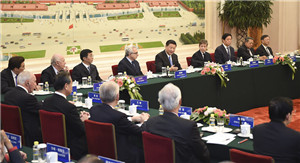
The 2nd "Understanding China" ConferenceOn November 1~3, 2015, the 2nd “Understanding China” Conference was held in Beijing Yanqi Lake International Conference Center. Zhang Gaoli, Vice Premier of the State Council, attended the opening ceremony.
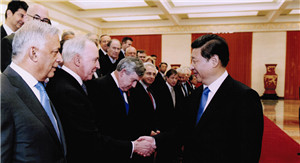
The 1st "Understanding China" ConferenceOn November 1~3, 2013, the 1st “Understanding China” Conference was held in Beijing, which was cosponsored by China Institute for Innovation & Development Strategy (CIIDS), Chinese People’s Institute of Foreign Affairs (CPIFA), and Berggruen Institute on Governance.
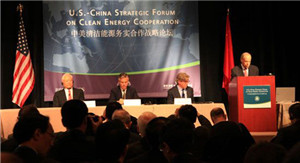
The 2nd U.S.-China Strategic Forum on Clean Energy CooperationWith the “Prospects for U.S.-China strategic cooperation in next decade” as its theme, the forum dwells on the implications of U.S.-China cooperation from the strategic perspective of coping with global challenges and maintaining world peace.
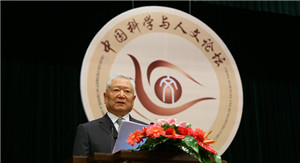
The China Sciences and Humanities ForumCo-initiated in April 2003 by renowned Chinese scientist Mr. Lu Yongxiang and influential political strategist Zhen Bijian, China Sciences and Humanities Forum was jointly hosted by Graduate University of Chinese Academy of Sciences (GUCAS) and the Higher Education Press.

